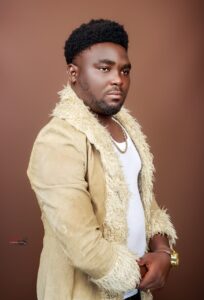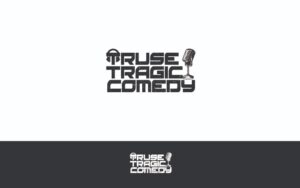
When you are the biggest star in the world with the weight of the almighty Disney corporation behind you, a commission to curate a side project for one of the year’s most anticipated films might mean something different. A chance to further burnish an already shining legend yes, but also an opportunity to broaden musical tastes and expand appetites by exploring newer, emerging soundscapes. It might present an opportunity to give. But what does giving mean in this case?
For Beyoncé Knowles Carter, pop music- and culture’s- ultimate monarch and sovereign ruler, the 2019 Jon Favreau directed, CGI dependent remake of the 1994 animation classic, The Lion King is an occasion to voice Nala, the spunky love interest of the film’s hero, Simba who convinces him to return to pride lands to claim the throne that is rightfully his.
But anyone who casts Beyoncé in a musical and ignores the music end of the deal only has themselves to blame. With this in mind, apart from her big scene singing the Oscar winning Elton John penned Can you feel the love tonight duet, plus Spirit, the inevitable brand new addition to the film and soundtrack, Beyoncé was commissioned to write, executive produce and curate new music for an offshoot project obviously titled, The Lion King: The Gift.
Smell like overkill? What else can be expected when two gigantic global brands collide?
Is the project a gift to the Beyhive who receive every Beyoncé project with all the seriousness of a religious experience? Or is it for the African collaborators like Wizkid, Yemi Alade and Busiswa who will no doubt be introduced to newer audiences because of their association with the Queen B? Could it be a present from Beyoncé to herself as she dives deeper, creatively into a culture that has long inspired her work?
Origin story
To better understand the idea behind Beyoncé‘s The Lion King: The Gift and why it matters, it is useful to have a tiny appreciation of the story behind the original film. According to film lore, the initial seed for what was to become, ironically Disney’s first animated feature based on an original story, was sown by some film executives on a trip to Europe. The team decided on a story set in Africa with elements of death and coming of age amongst other life experiences, incorporated generously.
After undergoing several revisions, creatives and name changes- discarded working titles include King of the Kalahari and King of the Jungle– the production team took a working trip to Hell’s Gate National Park in Kenya to better understand the Savannah environment that would eventually become the film’s pride lands.
Even though The Lion King is an original story- credited to a long list of writers- elements of the screenplay were obviously inspired from Shakespeare’s Hamlet as well as Biblical characters like Moses and Joseph. Lyricists Tim Rice and Elton John were brought in to provide music and the duo eventually produced five songs for the film, all of which eventually achieved iconic status.
To give the songs the traditional African flair that Rice and John could not create, Lebo M, a South African composer was invited to work on the project. Lebo M’s voice eventually became the first voice to be heard in the film’s final cut, crying ‘Nantsi Ingoyamma’, Zulu words for ‘Here comes a lion’ as the sun rises and the opening notes for Circle of life, as performed by Carmen Twillie ring in.
Not all of the musical collaborations were seamless.
Some controversy was brewed when a South African journalist, Rian Malan in 2000, wrote a feature article for Rolling Stone magazine alleging that the number, The Lion sleeps tonight, performed in the film was originally written and recorded in the 20s by his compatriot, Solomon Linda under the title, Mbube. Malan’s story estimated that although Linda died in penury, the song had been plagiarized severally, earning as much as $15 million for its inclusion in The Lion King alone. Filmmaker François Verster aired the Emmy-winning documentary A Lion’s Trail, about Solomon Linda’s tragic story, exposing the workings of the corporate music publishing industry in the process.
Similarly, Disney executives have claimed that the laggard’s anthem, Hakuna Matata a Swahili phrase which translates as No worries was overheard by a tour guide on a Safari excursion. This did not stop Disney from trademarking the phrase upon the film’s release back in ’94. Last year, over 100,000 people signed an online petition that called on Disney to drop its trademark.
In response, a Disney spokesperson told the New York Times that the trademark does not impede individuals from making use of the phrase. They added, “Indeed, for many years, trademarks have been registered for popular words and phrases such as ‘Yahoo!’, ‘Vaya con Dios (Go with God),’ ‘Merry Christmas’ and ‘Seasons Greetings’ without impeding the use of these phrases and words in any cultural way.”
‘’A love letter to Africa’’
None of these controversies was potent enough to stop Disney’s The Lion King from becoming a cultural juggernaut. The film was one of the most profitable entities in film history, earning close to a billion on a $45 million budget- the 2019 remake has already out earned this number.
But this is 2019 and the environment- both in Hollywood and the music business- has changed significantly. Inclusivity and diversity are the new buzzwords as minority groups gain greater access to representation. Accusations of cultural appropriation are dirty stains that no one wants on their watch. Disney for instance has handed chunky roles in 2019’s The Lion King to thespians of color like Donald Glover, Chiwetel Ejiofor and Beyoncé herself, better to reflect the composition of the original characters and repurpose the vehicle from any original white fantasy ideas.
With this in mind, while curating The Gift, once the direction was settled on, Beyoncé opened her arms wide to reflect the picture she and the film, were trying to create. “Each song was written to reflect the film’s storytelling that gives the listener a chance to imagine their own imagery, while listening to a new contemporary interpretation.’’ She said in a statement preceding the film’s release.
Beyoncé describes The Gift as a ‘’love letter to Africa’’ and added that, “It was important that the music was not only performed by the most interesting and talented artists but also produced by the best African producers.’’ “Authenticity and heart were important to me.” She stressed.
The search for authenticity and heart led all the way back to Africa but this time by way of the United States of America. Thanks to technology, and the internet, Africa is no longer that exotic blank space where foreign creatives apply their paint brush so cluelessly. In the quarter decade since the release of the original film, the music business has changed. African acts like Youssou N’dour, Femi Kuti and Angélique Kidjo are highly visible worldwide, with another generation of artistes from Senegal to South Africa following closely in their footsteps.
Nigeria isn’t just home to the largest population of black persons in the world, its music market, aside from South Africa’s has seen the most organized indigenous growth in that period of time. Naturally, American executives have been watching, and adding fuel to fire where necessary.
2Baba, leader of his generation of performers, attempted a crossover when his best selling classic African Queen was included in the soundtrack to the minor 2006 Mo’Nique comedy, Phat Girlz. D’Banj had a genuine crossover hit in the United Kingdom with Oliver Twist and was for a hot minute, affiliated with Kanye Wests G.O.O.D label. Only three years ago, Star boy, Wizkid scored a Billboard Hot 100 number one song, albeit as a featured artiste on Drake’s Afrobeats inspired, One Dance.
Wizkid signed a record deal with Sony Music/RCA, Davido also joined the Sony family at some point, so did Tekno. Elsewhere Tiwa Savage left local champions Mavins to hook up with Universal Music Group, as did Burna Boy. These power moves are important to note as they are a primer to Beyoncé’s creative and business decisions on The Gift.
Speaking on her work in film, Netflix executive, Funa Maduka once stated that “the paradox of arriving at a truly universal story is often found in its specificity.’’ This has held up consistently even in the music business. In seeking for sounds and influences from Africa- a huge geographical area housing 54 countries and a diversity of cultures, Beyoncé, inspired by the Kendrick Lamar curated Black Panther soundtrack, made the right call, for coherence, in zeroing on a specific culture to inform the majority of the project. This considers the fact that there is not one universal African sound, or accent, or language, or anything for that matter.
The go to music culture in this case happened to be contemporary Nigerian pop music, a broad collection of sounds- hip hop, Afrobeat, pop, highlife, juju- collectively christened as Afrobeats for ease of description. Making a careful selection from a generation of entertainers, Beyoncé and her team, an incredibly efficient machinery made contact with Wizkid, Burna Boy, Tiwa Savage, Yemi Alade, Mr Eazi and Tekno from Nigeria, Shatta Wale from Ghana, Salatiel from Cameroon, all on the west of the continent. Going further south, she chose to work with Busiswa and Moonchild Sanelly. These are just the visible artistes as a host of African producers and A&R executives (Bankuli, Bubele Booi) were represented behind the scenes.
But also a business deal
This decision to focus West was a strategic decision. Apart from Yemi Alade, all of the Nigerian artistes featured on The Gift have affiliations with international labels. No chopped liver, Ms Alade has conquered territories in Francophone Africa and Europe with her brand of tumbum tumbum music. Even though they aren’t household names yet in the rest of the world, these superstars are as big in parts of Africa as Beyoncé is in America, with streaming and engagement numbers that back up their talk.
Speaking on the collaborative process that birthed the record, Beyoncé makes a bold claim. Hear her, “A lot of the drums, the chants, all of these incredible new sounds, mixed with some of the producers from America, we’ve kinda created our genre.”
As with many things American, this statement suffers from a gross overestimation. While the blend of sounds are exciting and forward pushing, nothing Beyoncé does on the record approaches ground breaking stuff. Forget the part about a whole new genre, this stuff is new only to someone who hasn’t accessed Nigerian music at all.
Still, the record is not quite Afrobeat enough as the mash up of sounds aren’t quite novel enough. The Gift therefore ends up in some kind of middle passage. A track like Otherside for instance, comes across as doing too much at once. Beyoncé starts with rolling piano melodies and then blossoms into Yoruba chants and a Swahili postscript tacked on for good measure.
Instead of subsuming her collaborators into her force field, Beyoncé is generous enough to let the identities of each and everyone of them shine through. Surprisingly she excels at this so much so that Yemi Alade cannot bring herself to rise above her mediocre creative run of late. On the middling threesome, Don’t Jealous me, Alade mumbles a string of nonsense that isn’t surprising to anyone with some knowledge of her music. For the gqom anthem, My Power, Alade’s second appearance, her cameo is easily blown away by her more interesting- and interested- collaborators.
Where it works, this strategy of handing individual agency to the collaborators is quite beautiful to observe. Tiwa Savage shows her songwriting chops on the seductive Keys to the Kingdom and Burna Boy is on home turf in Ja ara e, where he draws a line between Simba’s travails and the daily hustle in Lagos. These songs are perfectly fine but they aren’t the best that either star has done, or can do. They are enough for Beyoncé and her team though. Which begs the question of what could have emerged if a team with more agency invested in the world of contemporary Nigerian music had pushed and prodded these artistes to do more.
Beyoncé proves to be not only a generous collaborator but an adventurous one as well. The elasticity which she adopts, to keep up- or at least attempt to- with the manic Shatta Wale on the afro-dance highlight, Already, and roll with the girls Busiswa, Moonchild Sanelly and Tierra Whack elsewhere for the high energy punch of My Power is impressive and deserves plenty of commendation. She could do this Afrobeats thing properly if she chooses to.
A history of engagement
Beyoncé’s engagement with Nigerian culture goes some way back. In an appearance at the This Day music festival in 2009, she sang a flawless rendition of the national anthem, much to the pleasure of the attendees, and declared that her ancestors come from Nigeria. Her 2016 classic, Lemonade is famous for incorporating heavily the Sacred art of the Ori work of artist Laolu Sebanjo in the visuals.
The arresting video for Lemonade lead single, Hold Up has Beyoncé swinging a bat, but paying homage to Oshun, the Yoruba deity of the rivers and fresh waters. For her Grammy performance the following year, a heavily pregnant Beyoncé paid tribute once again to Oshun. She appeared as a glowing figure, draped in golden yellow, assisted by images depicting femininity and motherhood. Last year the announcement for Beyoncé and Jay-Z’s joint OTR 11 tour was promoted with cover art inspired directly from the seminal 1973 Senegalese film, Touki Bouki directed by Djibril Diop Mambety. In her fashion, she has also championed the work of Maki Oh as well as other African designers.
The Gift might be more meaningful, if it didn’t arrive with a flaw in its design. Even while celebrating the sounds of Africa and her connection to the motherland, Beyoncé still managed to leave out African artistes- and music- from the eastern region, an egregious omission considering the region’s contribution to the film’s origin. Kenyan artiste Victoria Kimani has been vocal about pointing out this omission. ‘’As much as we celebrate with our fellow Africans …. The obvious exclusion of Kenyans / East Africans on this Soundtrack is Depressing…. The movie was based on KENYA’’ Kimani Lamented via Twitter.
Naturally the artistes who made the cut cannot quite relate with Ms Kimani. Yemi Alade, prepping for the release of her Woman of Steel album told Rolling Stone that The Lion King: The Gift is ‘’yet another awakening, another step in the right direction.”
A Beyoncé boost is nice and tidy but the truth is Nigerian music, particularly Afrobeats, has been bubbling under the global mainstream for a long time now. Beyoncé may help make a bigger push but to ascribe the bulk of the efforts to her like many American publications are doing is rather disingenuous. In some ways Beyoncé is even late to the party.
Tekno sums up this present moment best in his comments to Billboard, ‘’I believe it puts that big stamp of approval on Afrobeats by a world-renowned artist. Afrobeats has always been dope, and we’ve been selling out venues. This is that extra stamp for the latecomers.’’






